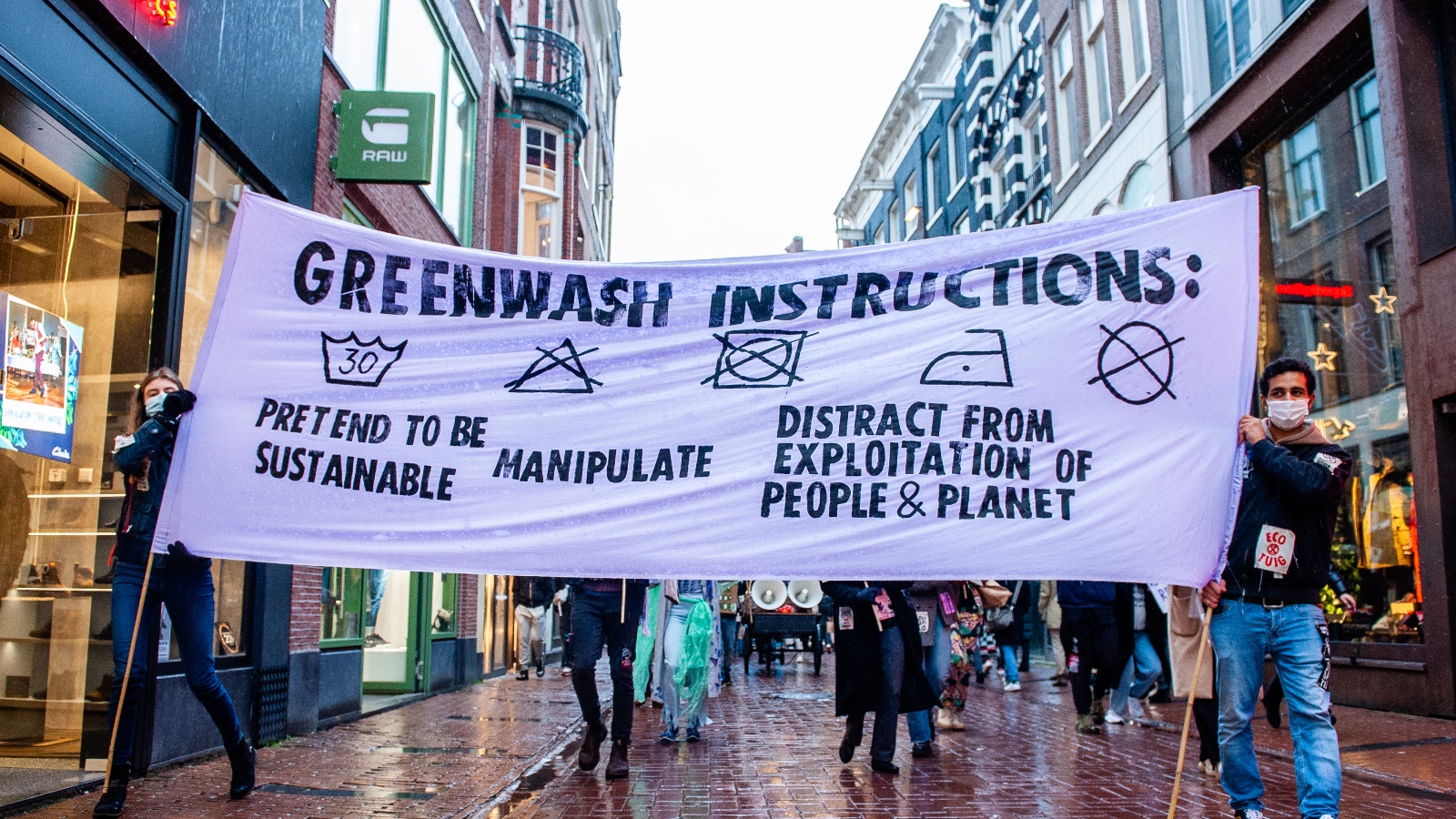The biggest oil companies remain mired in the business of selling fossil fuels, but their marketing is all about going green.
Well over half of Big Oil’s advertisements promote the message that they have embraced clean energy and emissions reductions, and other such “green claims,” according to a new report from InfluenceMap, a think tank based in London. Researchers found that BP, Chevron, ExxonMobil, Shell, and TotalEnergies spent an estimated $750 million last year to promote a climate-friendly image — and the report calls that “a conservative estimate.”
Yet at the same time, the report found that all five companies were on track to increase oil production by 2026. Together, these companies spend only about a tenth of their investments on pursuits they consider “low-carbon.” Shell had the widest gap between its words and actions: While the company touted its carbon-cutting efforts 70 percent of the time, it only put 10 percent of capital expenditures toward low-carbon investments. The companies have also recently lobbied governments to weaken renewable energy policies and further the production of fossil fuels.
To understand what message oil companies were sending to the public, InfluenceMap’s researchers analyzed more than 3,400 social media posts, press releases, blog posts, and other communications from oil companies last year. They found that 60 percent contained environmentally-friendly messages, while only 23 percent promoted oil and gas. The most popular message was about adopting clean energy, followed by publicizing their efforts to reduce emissions. Many oil companies have a plan to zero out their emissions by 2050 — though their plans often fail to account for the emissions from the fossil fuels they’re selling.
The evidence shows these companies are making a real effort to distance themselves from oil, their key product, in their marketing. Consider BP’s “Who we are” webpage, which touts a goal of “reimagining energy for people and our planet” and helping “the world reach new zero.” You have to scroll to the bottom of the page to find any mention of “oil” at all, and even then, it’s in a section about how the company is moving away from the fossil fuel.
“It’s really clear,” said Faye Holder, a co-author of the new report. “They are trying to get across the message to people that they’re not an oil company — they are part of the solution on climate change.” Shell’s “About us” webpage doesn’t mention oil and gas at all; neither does Chevron’s, “the human energy company.”

The findings support previous research that revealed a major disconnect between Big Oil’s words and actions. Oil companies have been emphasizing their green credentials to cover up environmentally destructive practices for decades, a marketing tradition called “greenwashing.” And people buy it. Research has demonstrated that public relations agencies have shaped the public debate over climate change for 30 years, popularizing phrases like “carbon footprint” and “clean coal” to emphasize personal responsibility and deflect blame from fossil fuels. Greenwashing has become so widespread that the word was recently added to the Merriam-Webster dictionary.
One way to tell if companies are greenwashing is to see how they’re spending their money. Overall, 12 percent of Big Oil’s capital expenditures for 2022 are expected to go toward “low-carbon” activities, based on information disclosed by the companies. And that category is generous: Both Total and Shell appear to have put natural gas investments in this “low-carbon” bucket, according to the InfluenceMap report, which jibes with advertisements that promote the fossil fuel as “green.”
Then there’s political lobbying. The new research found that four of the five companies, barring the French giant Total, have directly lobbied for policies to encourage further oil and gas development since the beginning of 2021. In testimony to Congress in April, for instance, Shell’s CEO Gretchen Watkins advocated for permitting new oil and gas projects in the Gulf of Mexico.
Additionally, the new report found that all the companies except Chevron have recently lobbied to weaken renewable energy policies by encouraging the long-term use of natural gas. Last December, Exxon ran advertisements opposing proposed legislation that would ban gas in new buildings in New York City, falsely warning homeowners that they could be forced to pay thousands of dollars to switch to electric appliances. BP, Chevron, Exxon, and Shell are members of the American Petroleum Institute, an industry association that actively opposes climate policies.
The report found that CEOs are leading the way in promoting a green image for their companies. “Companies that are carbon intensive today — but have an ambition to decarbonise and get to net zero like @bp_plc does — are needed by the world every bit as much as green companies,” Bernard Looney, BP’s CEO, posted on Instagram last April.
LinkedIn is one of their favorite places to do it. The CEOs of Chevron, Shell, BP, and Total make green claims about their business in 72 percent or more of their posts there. “It really indicates this effort is being led from the front, and that it’s being pushed by the leaders of these companies,” Holder said.




